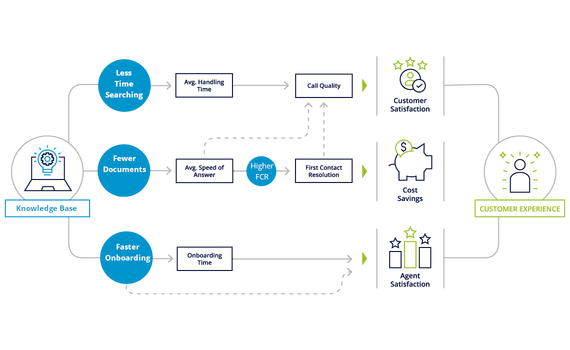By
Chris Rall
|
Date Published: June 10, 2020 - Last Updated September 08, 2020
|
Comments

Knowledge management isn’t something you hear about on tv. Despite sounding dry or even academic, it’s one of those things we don’t notice when everything works, and often even don’t suspect when things are not working.
Whatever your job, when was the last time you had trouble finding information? Maybe it was a Word document, a company policy, or just an old message. Chances are, the last time was probably today, or even yesterday. If you asked multiple people, I’d bet you got different answers that included:
“Check the shared drive”
“Look in Confluence”
“Hmm, lemme find that email”
“Ask so-and-so”
These are just some of the indicators something’s not right, even though for most people it’s actually the status-quo. Now, imagine you work in customer service and need to provide answers to customers on the spot. Suddenly, knowledge management is essential.
It’s essential to accurately diagnose when there’s a knowledge management problem. We walk through the troubleshooting symptoms from five different perspectives within an organization and the customer journey:
According to Agents:
- It is hard to find information
- Conflicting answers to simple queries
- Missed upsell opportunities
- High rate of call transfers
- Falling first contact resolutions
According to Team Leads:
- People always go to one person for answers
- Agents are providing different answers to the same question
- High turnover
- KPIs stagnating or declining
- Long onboarding process
According to Editors:
- Difficult to maintain multiple sources of knowledge
- No standard feedback process for documents
- There are frequently multiple versions of documents
- No automated workflows
- No analytics about document usage or searches
According to Customers:
- Long wait times on the phone
- Inconsistent answers received between channels
- Lack of confidence in the agents’ answers
- Simple issues aren’t fixed without a call or email
- Need to call back about the same issue
The good news is that solid knowledge management infrastructure delivers direct benefits and a cascading effect of improvements through your KPIs and processes. So the next time you’re analyzing metrics, reviewing your software stack or puzzling over stubborn KPIs that just don’t seem to be changing no matter what you do, go through the above list. The hidden thread connecting many of your problems could be knowledge management.